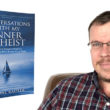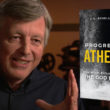Did God Command Genocide in the Old Testament?
by Dr. Randal Rauser
Filed under Uncategorized

The heart and foundation of Christianity is belief in a God who is worthy of worship: in the words of Anselm, that being than which none greater can be conceived. And so, when the Bible depicts God as acting in a manner that appears to be less-than-perfect, this creates a challenge for the Christian reader. There is perhaps no more glaring an example of this problem than God’s command to the Israelites in Deuteronomy 20:16-17: “16 However, in the cities of the nations the Lord your God... Read More
Is There a Link Between Atheism and Skepticism?
by Dr. Randal Rauser
Filed under Uncategorized

There is a popular notion that doubt and skepticism are specially linked to atheism. But is that borne out by the evidence or is it just a bit of branding based on a limited selection of doubt? It is also very common to find atheism being linked to skepticism. There is a popular narrative that traces the origins of skepticism back to ancient Greece when philosophers first began to doubt the existence of the gods as they had been popularly understood. One finds a reflection of the intimate... Read More
How can the God of the Philosophers be the God of Abraham, Isaac, and Jacob?
by Dr. Randal Rauser
Filed under Uncategorized

Doubt and questioning are a part of the Christian faith. In Randal Rauser's new book, Conversations with My Inner Atheist, the Christian theologian and apologist explores his own doubts and questions by way of an internal conversation with his own inner atheist, Mia (i.e., "My Inner Atheist.") This article is a chapter drawn from the book in which Randal and Mia explore the question of how one can identify the God of the philosophers with the God described in the Bible. ... Read More
Religion After God: A Review of “Progressive Atheism”
by Dr. Randal Rauser
Filed under Uncategorized

“Atheism, we’ll say, for all we know may come at the beginning of religion rather than the end.” (173) That is not the kind of quote you’d expect to find in a typical book defending an atheistic perspective. But then again, J.L. Schellenberg did not write a typical atheistic book. Progressive Atheism: How Moral Evolution Changes the God Debate (Bloomsbury, 2019) is a manifesto of innovative and iconoclastic atheist thought in the manner of Ronald Dworkin’s Religion without... Read More
If Theism is True, is Nihilism False?
by Dr. Randal Rauser
Filed under Atheism, God

I recently saw this on Twitter, and thought it worth discussing: When people say atheism entails nihilism they're more than likely saying "I'll be really sad if I couldn't believe I'm immortal and will eventually live in paradise." — Counter Apologist (@CounterApologis) January 13, 2019 I like Counter Apologist, but this is akin to saying “When people say ‘God doesn’t exist’ they’re more than likely saying ‘I don’t want to submit to God.'” Rather... Read More
A Defense of Apatheism (Sort Of)
by Dr. Randal Rauser
Filed under Atheism

NOTE: This autumn I will be presenting a qualified defense of apatheism at a conference. This is a draft of the paper I plan to deliver. It is in response to Jonathan Rauch’s important essay “Let it Be” in which he develops the concept of apatheism. The link between 9/11 and the new atheism is well-established, but that terrible day also spurred another lesser known response to religious zeal. I speak of the apatheist celebrated by Jonathan Rauch in a pithy but very influential... Read More
The Top 5 Problems with Contemporary Christian Apologetics
by Dr. Randal Rauser
Filed under Man, Religion

I spend a lot of time criticizing contemporary Christian apologetics. Since I am myself a Christian apologist, that might seem a bit strange. But it is, in fact, simply a practical outworking of my commitment to what I call the 50/50 Rule: 50/50 rule: devote as much time to (a) defending the beliefs of your opponents and critiquing your own beliefs as you devote to (b) critiquing the beliefs of your opponents and defending your own beliefs. (Read... Read More
Why Doesn’t God Give Everyone a Miracle?
by Dr. Randal Rauser
Filed under God

Some years ago, a friend of mine told me how, after losing his wife to cancer, he encouraged his embittered young adult children to return to church. On their first visit to a small group, several people shared their recent answers to prayer — miracles, they said — while the two young visitors sat quietly. When they returned home that night, my friend’s kids asked one question: “Dad, if God answered all those prayers, why didn’t he answer ours?” In short, if God gives... Read More
Does Good Conversation Really Require an Open Mind?
by Dr. Randal Rauser
Filed under Man

Over the years, I have often heard atheists pose the question, “What kind of evidence would it take you to give up your Christian belief?” In many cases, the assumption behind the question seems to be that the Christian should have some clear threshold of evidence in mind. And failure to state what that threshold is would call into question the rationality and intellectual seriousness of the Christian. Atheists aren’t the only ones posing this kind of demand. I recently came across a similar... Read More
Atheists Who Want Atheism to be True
by Dr. Randal Rauser
Filed under Atheism

The existence of God is a topic that tends to elicit strong passions. People have their beliefs about whether God exists or not, but they also have their hopes. Many people hope God does exist, but some prominent voices express a hope quite to the contrary. This idea that one might hope God doesn’t exist appears deeply perplexing from a Christian perspective, so it is perhaps understandable why a Christian might be inclined to assume such a hope is automatically indicative of sinful rebellion.... Read More







